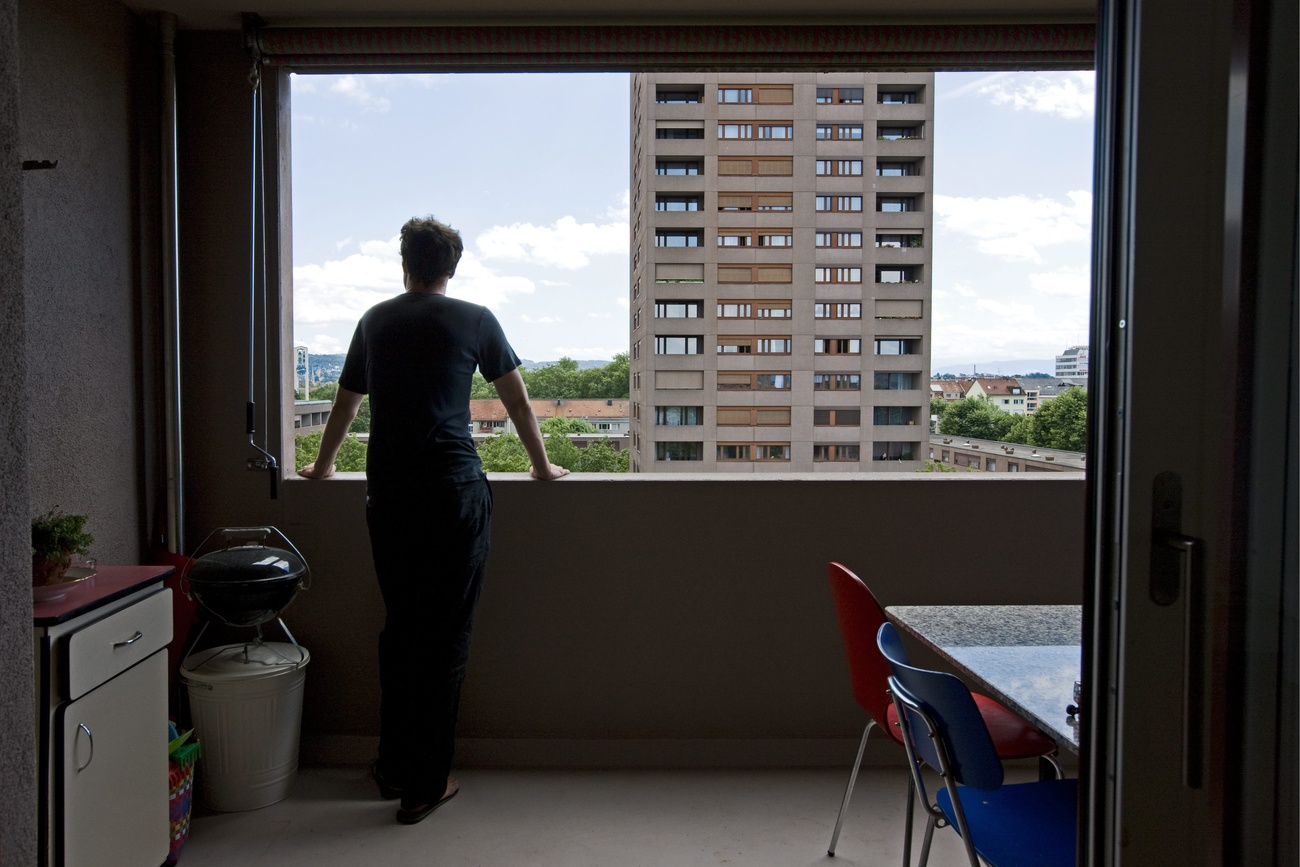
Will Swiss voters accept standardised financing of healthcare?

On November 24, the Swiss will decide whether to accept standardised financing of healthcare. The scheme aims to reduce the burden of insurance premiums and encourage outpatient treatment. However, the Swiss Union of Public Servants Personnel, which initiated the referendum, warns of potential negative effects on both healthcare workers and patients.
+ Swiss popular votes – everything you need to know
Swiss voters are being asked to decide on a complex proposal related to healthcare, a complicated subject in itself. This year alone, Swiss voters have rejected one popular initiative to curtail healthcare costs and another to lower premiums. Switzerland’s healthcare challenges are far from resolved.
The modification of the law which will be voted on was accepted by parliament last December. It had been 14 years in the making, starting in 2009. A sizeable majority of the elected representatives supported the standardisation of the financing of outpatient and inpatient care (EFAS in German). It represents one of the largest revisions in recent years of the Federal Law on Compulsory Healthcare (KVG in German), which was introduced in 1996.
How does it work at the moment?
When someone is treated in hospital and stays for at least one night, that is defined as inpatient care. At present taxpayers pay at least 55% of these costs via the contribution of their canton. The rest is covered by the compulsory health insurance scheme which everyone pays into.

More
Six lessons from Swiss healthcare vote
To receive treatment in hospital and leave the same day is considered outpatient care. This is entirely paid for by the healthcare premiums.
In the case of long-term care – in a nursing home or at home – the costs are shared by the compulsory insurance (basic health insurance), patients themselves (whose contribution is determined at the federal level) and the canton.
What would change with the EFAS revision of the law?
Standardisation of the financing establishes an identical distribution of costs in all three areas considered by the basic health insurance. Of the net costs after the patient’s financial contribution has been deducted, the cantons will pay at least 26.9% and the premiums at most 73.1%.
The implementation of this new scheme would begin in 2028 and, for long-term care, after a period of transition in 2032. Long-term care furthermore would be paid for entirely according to tariffs which cover the costs.
The cantons will contribute financially to outpatient care and be able to codirect it. Their contribution will be distributed among the insurance companies on the bases of real costs, through an ad hoc commission of the insurers’ own common body competent for compulsory healthcare.
What does this revision of the Compulsory Healthcare Law aim to achieve?
First, it would alter the balance between cantons and insurance companies in covering the costs of hospital treatment. Second, the quality of care should both improve and be more affordable for patients.
The changes to the law also aim to tackle perceived false incentives in the present system. Now, for example, an operation must be followed by a night in hospital. This is not always justified. Also, outpatient care is more expensive for the insured than inpatient care. Why is that? It’s not in the insurance companies’ interest to encourage their insured to choose an outpatient option as they have to cover the full cost.
This revision would also interrupt the transfer of costs to the insured. According to the Federal Office of Public Health, the increase in outpatient care in recent years because of a transfer from inpatient care, has been paid for entirely by the compulsory health insurance, in other words through the premiums.

More
How to fix Switzerland’s costly healthcare system
Is there an official estimate of how much will be saved?
Standardising the financing is expected to encourage healthcare coordination between the different actors. This ought to limit unnecessary treatments: tests done twice, unjustified hospitalisation or premature admission to a nursing home. A study released by the Federal Office of Public Health estimates that up to CHF440 million ($509 million) could be saved each year.
Who is in favour of these changes to the law and why?
These changes are the result of a compromise in parliament. The revision enjoys the support of the government, most of the political parties and the bulk of actors in the healthcare sector. They consider that better coordinated healthcare implies that both the quality of treatment and the way in which patients are looked after will improve.
“Coordination between the different actors in the healthcare sector will provide the best solution for each individual patient,” claims a broad alliance in favour of these changes to the law. The alliance comprises 22organisations of professionals in the sector (the national support and home care organisation Spitex, the federation of hospitals H+, the federation of Swiss doctors FMH, Curafutura, Interpharma, etc.).
According to its supporters, with the new focus on outpatient care EFAS will enable patients to recover at home even better. This shift away from inpatient care will also mean the insured saving money, thanks to renewed home care services.
Furthermore, according to supporters, the move towards outpatient care will bring a huge improvement for healthcare professionals. They will benefit from more regular shifts, which will make these jobs more attractive. In the opinion of economiesuisse, the Swiss Business Federation: “Cantons will have their say on how outpatient care will be charged. Therefore, the influence of the insurance companies will not grow but shrink.”
Why do the unions see things differently?
The vote comes as a result of the referendum launched by the Swiss Union of Public Service Personnel and supported by the Swiss Trade Union Federation. In their opinion, the proposed changes give the insurance companies far too much power. They are already seen to be in a permanent conflict of interest as they manage the compulsory health insurance while aiming to sell their supplementary insurance policies to new clients at the same time.
Critics of the proposed changes say the cantons would be handing over their responsibilities to the insurance companies, and thus the private sector, by transferring their share in financing to the insurance companies.
The Swiss Union of Public Servants Personnel also argues that the authorities will be dodging their responsibility for guaranteeing the financing of nursing homes and home care. The union is afraid that working conditions in healthcare and the quality of services will worsen once again, as costs will be given priority over patients’ needs.
“People living in nursing homes will be considered as sources of profit, whereas they are vulnerable human beings,” the general secretary of the union says. If the EFAS changes are implemented, the financing will come from premiums and not taxes – a shift seen as inequitable since the premiums are independent of both income and wealth.
Edited by Samuel Jaberg. Adapted from French by J. Waardenburg/ds

More
Voters to decide if Swiss landlords need extra rights

More
Voters to decide on major Swiss motorway expansion

In compliance with the JTI standards
More: SWI swissinfo.ch certified by the Journalism Trust Initiative


































You can find an overview of ongoing debates with our journalists here . Please join us!
If you want to start a conversation about a topic raised in this article or want to report factual errors, email us at english@swissinfo.ch.